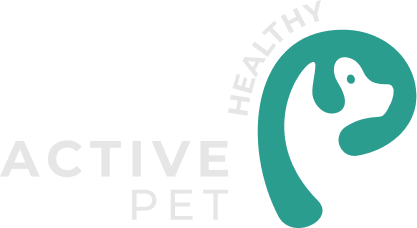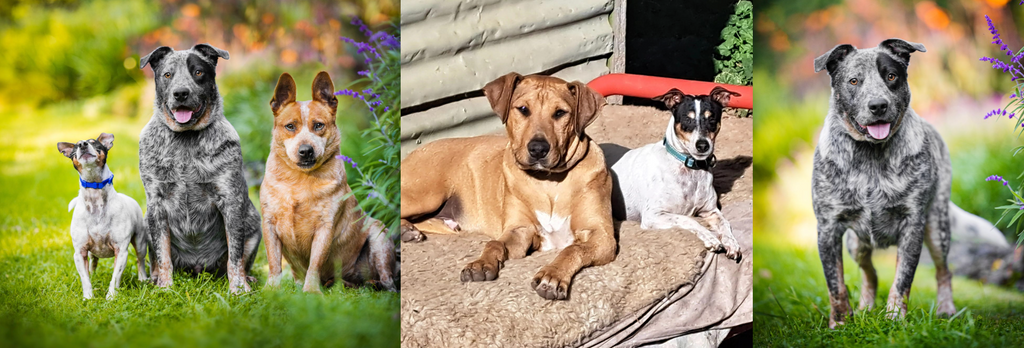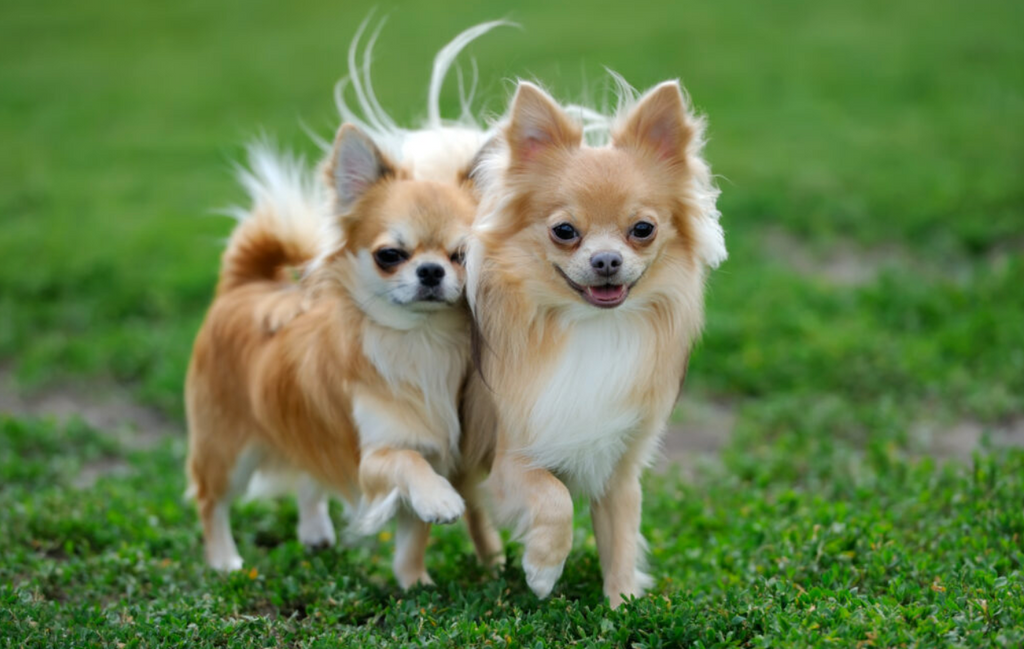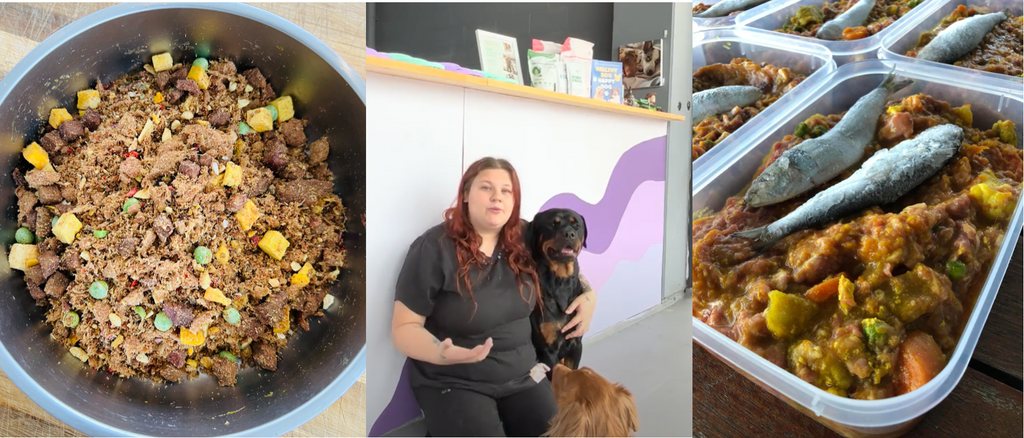
6 foods your dog should avoid to lose weight
If you've noticed your dog packing on a few extra kilos, it's important to take action for their health and well-being.
One way to support your dogs weight loss journey is by avoiding certain types of food that can contribute to weight gain. Today, we will explore six foods your dog should avoid to lose weight and boost their overall health.
Key Takeaways:
- High-fat treats like bacon and cheese can contribute to weight gain.
- Feeding your dog table scraps may promote weight gain and lead to other health issues.
- Sugary snacks and processed meats provide little to no nutritional value and should be avoided.
- Commercial dog food with excessive grains and fillers can lead to weight gain.
- A raw food diet can have numerous benefits that can help your dog achieve better weight management

Understanding the Importance of a Healthy Weight for Dogs
As pet owners, we love our dogs and want them to live long, healthy lives. One crucial way to ensure this is by maintaining a healthy weight. Obesity can lead to numerous health problems in dogs, just as it does in humans.
A healthy weight helps to reduce the risk of joint problems, heart disease, diabetes, and other health conditions. It also improves their mobility, energy levels, and overall quality of life. In fact, studies have shown that maintaining a healthy weight can increase a dog's lifespan by up to two years.
| Benefits of a Healthy Weight in Dogs | Dangers of Excess Weight in Dogs |
|---|---|
|
|
The Dangers of Excess Weight in Dogs
Excess weight in dogs can lead to numerous health issues, such as joint problems, heart disease, and diabetes. These conditions can significantly impact their quality of life and put a strain on our relationships with them.
Joint problems, such as arthritis, can cause pain and inflammation, reducing mobility and energy levels in dogs. Heart disease can lead to breathing difficulties, lethargy, and poor circulation, while diabetes can adversely affect their eyesight and overall immunity.
Moreover, research has shown that overweight dogs typically have a shorter lifespan and lower overall happiness levels than those of healthy weight. In addition, they may require costly medical treatments and regular vet visits, potentially leading to financial strain and emotional stress for pet owners.
Therefore, it's crucial to take proactive steps to prevent excess weight gain in dogs, monitoring their diet, physical activity levels, and overall health. By doing so, we can help our beloved furry companions stay healthy, happy, and by our side for years to come.
1) High-Fat Treats
We all love treating our furry friends with tasty snacks, but some treats can do more harm than good. High-fat treats like bacon, cheese, and fatty cuts of meat can contribute to weight gain in dogs. These treats often contain a high number of calories, which can cause your dog to gain weight and possibly become overweight.
The Caloric Content of Some High-Fat Treats
| Treat | Calories (per serving) |
|---|---|
| Bacon (cooked) | 42 calories per slice |
| Cheese (cheddar) | 114 calories per ounce |
| Hot Dogs | 151 calories per link |
| Fried chicken | 319 calories per serving |
| Pepperoni | 138 calories per ounce |
2) Table Scraps
Feeding your dog table scraps is a tempting habit that many pet owners fall into, but it can lead to excess weight gain and potential health issues.
Instead of feeding your furry friend table scraps, opt for high-quality dog food (we recommend raw dog food or freeze dried dog food) that provides them with all the nutrients they need.
3) Sugary Snacks
Unlike humans, dogs cannot regulate their sugar intake, making it crucial to avoid sugary dog treats. Furthermore, excessive sugar intake can lead to obesity and diabetes in dogs, causing severe health problems in the long run.
4) Grains and Fillers
If your dog's food is filled with grains and fillers, it can contribute to weight gain. These ingredients can be difficult for dogs to digest and offer little nutritional value. Look for high-quality dog foods with limited ingredients and avoid those that contain excessive fillers or grains.
Opt for natural and nutritious alternatives that will support your dog's overall well-being. You can see our freeze dried dog food here

5) Processed Meats
When it comes to feeding our furry friends, we want to ensure they receive the best nutrition possible. However, processed meats should be avoided as they offer little nutritional value and may even contribute to weight gain in dogs.
Processed dog food can also fall into this category, often containing unhealthy additives and preservatives that can impact our dog's health. It's important to read the label carefully and ensure you are feeding your dog high-quality food with nutritious ingredients.
6) Unhealthy Fillers
When it comes to your dog's food, it's important to pay attention to the ingredients list. Some dog foods contain unhealthy fillers like corn, wheat, and soy, which can contribute to weight gain and offer little nutritional value. These ingredients have become common in many commercial dog foods as they are cheap fillers.
While these fillers can be detrimental to your dog's health, there are options that provide natural and nutritious ingredients. Look for dog foods made with high-quality, whole ingredients like fresh meat, vegetables, and fruits that provide necessary vitamins and minerals. These types of foods can help your dog maintain a healthy weight and keep them happy and active for years to come.
Why a Raw Food Diet is Beneficial for Dogs
If you're looking for a way to support your furry friend's weight loss journey, transitioning to a raw food diet could be the answer. Unlike commercial pet foods that contain additives, a raw food diet comprises fresh ingredients, including raw meat, vegetables, and fruits. Here's why it's so beneficial:
| Advantages of a Raw Food Diet for Dogs |
|---|
| Better weight management: Raw food diets are lower in calories and higher in protein, aiding with weight loss and preventing future weight gain. |
| Improved digestion: The enzymes in raw food diets help improve digestion, reducing the risk of digestive issues like constipation, bloating, and diarrhea. |
| Stronger immune system: Raw food diets are rich in antioxidants, vitamins, and minerals that help boost your dog's immune system, reducing the risk of illnesses. |
| Healthier coat and skin: Raw food diets provide essential fatty acids and nutrients that promote healthy skin and a shiny coat. |
| More energy: Raw food diets provide essential nutrients to keep your dog active and energetic. |
It's important to note that transitioning your dog to a raw food diet should be done gradually to avoid digestive issues. It's also crucial to consult with your veterinarian to ensure the new diet meets your dog's specific needs.
Making the switch to a raw food diet can be a positive change for your dog's health, helping them achieve and maintain a healthy weight and overall well-being.
You can see our raw feeding dog food recipes and meal plans here




